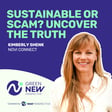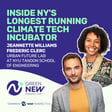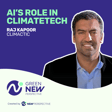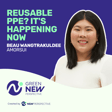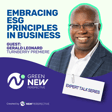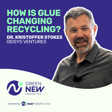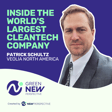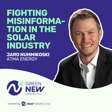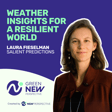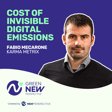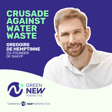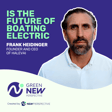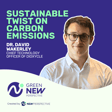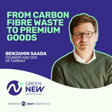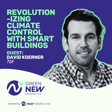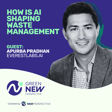
Podcast With Commons: Decoding the Carbon Footprint of Your Shopping
Ever wondered how much impact your shopping has on the planet? Commons is here to demystify that for you. This app tracks the carbon emissions from your purchases using advanced carbon algorithms. It's like having a smart, eco-conscious buddy in your pocket!
As you use Commons, you'll see not just where your money goes, but also how your choices affect the environment. The app helps you track your journey towards a smaller carbon footprint, showing you the progress you make over time.
👉 Interview with Sanchali: https://www.npws.net/podcast/shopping-carbon-footprint
========================
- Commons Website: https://www.thecommons.earth/
- Commons Instagram: https://www.instagram.com/the.commons.earth
- Get the app: https://apps.apple.com/us/app/commons-spend-sustainably/id1438446236
🌍 SUSTAINABILITY PODCAST CREATED BY NEW PERSPECTIVE
========================
This podcast is proudly sponsored by New Perspective Marketing, a dynamic growth marketing agency in Boston, MA, celebrating 20 years in business. We help sustainably focused B2B organizations grow their brands and scale up revenue. If you or your organization is looking to grow, visit npws.com for more info.
🎧 SUBSCRIBE TO OUR PODCAST
===========================
- Spotify: https://bit.ly/3PSWIyI
- Apple Podcasts: https://bit.ly/3RvlHte
- Youtube: https://bit.ly/3RDzkXg
- Google Podcasts: http://bit.ly/465gjS5
- Deezer: https://bit.ly/3PvQaof
- Amazon Music: https://bit.ly/3PQlijS
- Zencastr: https://bit.ly/48xt75s
💬 FOLLOW US ON SOCIAL MEDIA
============================
- Instagram: https://www.instagram.com/greennewperspective/
- Twitter: https://twitter.com/gnperspective
- Facebook: https://www.facebook.com/greennewperspective
- LinkedIn: https://www.linkedin.com/showcase/greennewperspective/
- TikTok: https://www.tiktok.com/@greennewperspective
#ai #cleantech #sustainabileshopping #EcoInnovation #SustainableLifestyle #EcoFriendlyShopping
